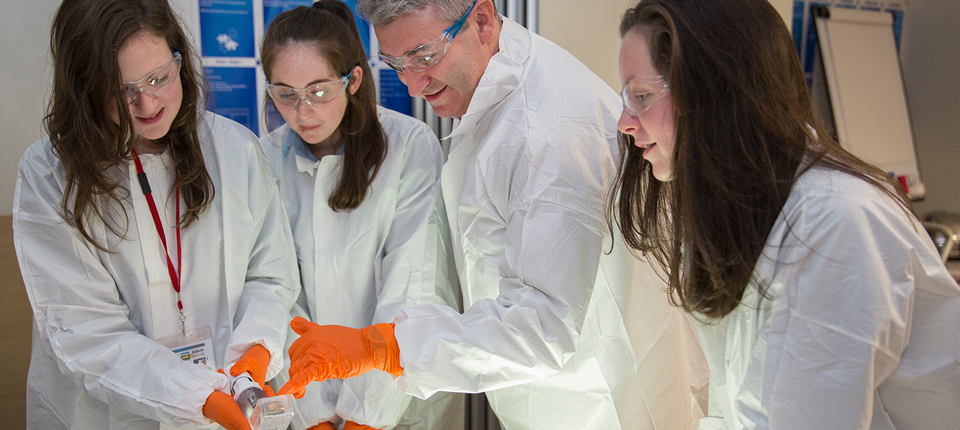
Game-Changing Tech Down to a Science
Science named us one of the best science-based companies to work for in the world.
Oct. 20, 2017
- Copy Link
- Share on X
- Share on Facebook
- Share on Linkedin
The results are in.
For the 14th year, the journal Science recognized Abbott on its Top Employers list.
It's an honor we're very proud of.
At Abbott, we work together to push science further and develop life-changing technologies that address some of healthcare's greatest challenges. For more than 125 years, our scientists have collaborated to make new connections and explore fresh approaches to help people live their best lives through good health. From freeing people with diabetes from routine fingersticks*, to building a cardiac device to save lives, to hunting for new virus mutations, every day Abbott employees are doing work that matters.
We celebrate their efforts.
Some of our latest breakthroughs include:
- A unified family of innovative next-generation diagnostics systems across lab disciplines that offer more efficiency, flexibility and confidence to health systems and better help doctors and nurses get the results they need to improve decision-making and patient care.
- Our revolutionary diabetes technology that replaces blood glucose monitoring, freeing people with diabetes from the pain and hassles of routine fingersticks.
- Pioneering neuromodulation technology that can transform quality of life for many people who are otherwise unable to find relief from their chronic pain, while also reducing or stabilizing opioid use among patients battling chronic pain conditions.
- A first-of-its-kind cardiac device that has transformed the treatment of certain kinds of mitral regurgitation (MR) for people who are too frail for open-heart surgery or those who are not candidates for surgery.
- Ground breaking research that has helped bring infant formula closer than ever to breast milk.
*A finger prick test using a blood glucose meter is required during times of rapidly changing glucose levels when interstitial fluid glucose levels may not accurately reflect blood glucose levels or if hypoglycemia or impending hypoglycemia is reported by the system or when symptoms do not match the system readings.
For the latest on Abbott’s life-changing technology, get updates directly in your inbox.